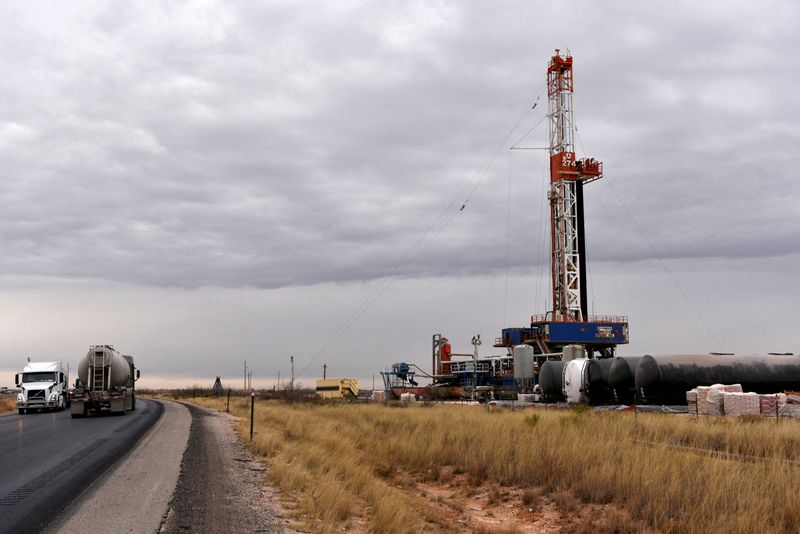By Laura Sanicola
(Reuters) -Oil prices settled slightly lower after choppy trade on Monday, buoyed by Saudi Arabia raising its July crude prices but amid doubts that a higher output target for OPEC+ oil producers would ease tight supply.
Brent crude fell 21 cents, or 0.2%, to settle at $119.51 a barrel after touching an intraday high of $121.95.
U.S. West Texas Intermediate (WTI) crude futures fell 37 cents, or 0.3%, to settle at $118.50 a barrel after hitting a three-month high of $120.99. The benchmark fell by $1 earlier in the session.
Saudi Arabia raised the July official selling price (OSP) for its flagship Arab light crude to Asia by $2.10 from June to a $6.50 premium over Oman/Dubai quotes, just off an all-time peak recorded in May when prices hit highs due to worries of disruptions in supplies from Russia.
The price increase followed a decision last week by the Organization of the Petroleum Exporting Countries and allies, together called OPEC+, to boost output for July and August by 648,000 barrels per day, or 50% more than previously planned, though constraint in global refining capacity has kept prices elevated.
"Crude inputs into the U.S. refineries have been reduced by about 6% from four years ago at this time with this reduction associating with a need for less crude cover while contributing to a severe tightness in the gasoline and diesel markets," said Jim Ritterbusch, president of Ritterbusch and Associates in Galena, Illinois.
The increased target was spread across all OPEC+ members, many of which have little room to increase output and which include Russia, which faces Western sanctions after its invasion of Ukraine in February.
"With only a handful of ... OPEC+ participants with spare capacity, we expect the increase in OPEC+ output to be about 160,000 barrels per day in July and 170,000 bpd in August," JP Morgan analysts said in a note.

On Monday, Citibank and Barclays (LON:BARC) raised their price forecasts for 2022 and 2023, saying they expected Russian output and exports to fall by around 1 million to 1.5 million bpd by end-2022.
Separately, Italy's Eni and Spain's Repsol (OTC:REPYY) could begin shipping small volumes of Venezuelan oil to Europe as soon as next month, five people familiar with the matter told Reuters.